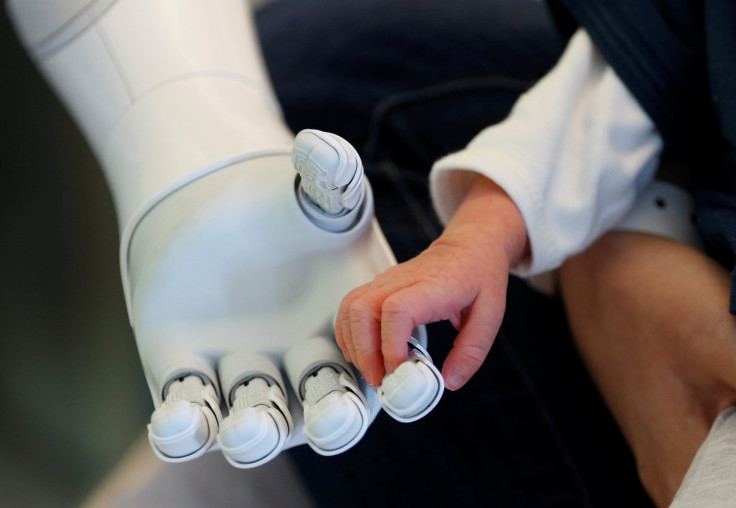Robots Are Coming For Your Job: New Report Predicts That 8.6 Million U.S. Workers Will Be Displaced By 2021

One of the biggest concerns surrounding artificial intelligence is that the technology will eliminate jobs as it becomes increasingly more sophisticated. According to a new report from Forrester Research, "intelligent agents and related robots" will eliminate 6 percent of U.S. jobs by 2021, wiping out, as The New York Post points out, 8.6 million jobs, or the equivalent of Florida's entire workforce, in just five years. And that's only the beginning of a "disruptive tidal wave" that will swallow up millions more jobs in the coming decades.
“By 2021, AI within intelligent agents will evolve significantly beyond today's relatively simple machine learning and natural language processing (NLP)," reads the report. "Emerging applications will feature improved self-learning and more complex scenarios. As basic agents gain consumer adoption, next-generation AI will not power intelligent agents until 2020 or beyond."
The report breaks down the carnage based on specific fields. For example, the first field to be impacted by artificial intelligence—chatbots, digital assistants, robotic process automation, and cognitive computing—will be customer service, followed by truck and taxi drivers and then the automotive industry. The general theme is that jobs that can be easily automated will be threatened by robots, as companies will likely prefer cost-efficient robots over humans.
"Solutions powered by AI/cognitive technology will displace jobs, with the biggest impact felt in transportation, logistics, customer service, and consumer services," the report said. "Early movers who have amassed large data sets will have created a baseline set of AI/cognitive services. Other disruptors will begin to use these services to scale their businesses and steal customers from competitors."
Existing artificial intelligence includes the likes of virtual assistants (Amazon’s Alexa, Alphabet's GoogleNow or Apple’s Siri) and chatbots. According to a survey, 45 percent of online adults in the U.S. say they use some variation of a virtual assistant. In the transportation industry, companies like Uber and Tesla are experimenting with driverless cars. And while six percent sounds like a small shift, its impact could be significant.
“Six percent is huge. In an economy that’s really not creating regular full-time jobs, the ability of people to easily find new employment is going to diminish,” Andy Stern, the former president of the Service Employees International Union, told The Guardian. “So we will have people wanting to work and struggling to find jobs because the same trends are beginning to occur in other historically richer job creation areas like banking, retail and healthcare. It’s an early warning sign and I think it just portends a massive wind of change in the future.”
What does the world look like with more robots and intelligent assistants?
“The doorbell rings, and it’s the delivery of a new pair of running shoes, in the right style, color and size, just as you needed to replace your old ones," predicts Forrester Research. "And here’s the kicker: you didn’t order them. Your intelligent agent did.” Let's hope you still have a job, so you can pay for them.
© Copyright IBTimes 2024. All rights reserved.






















